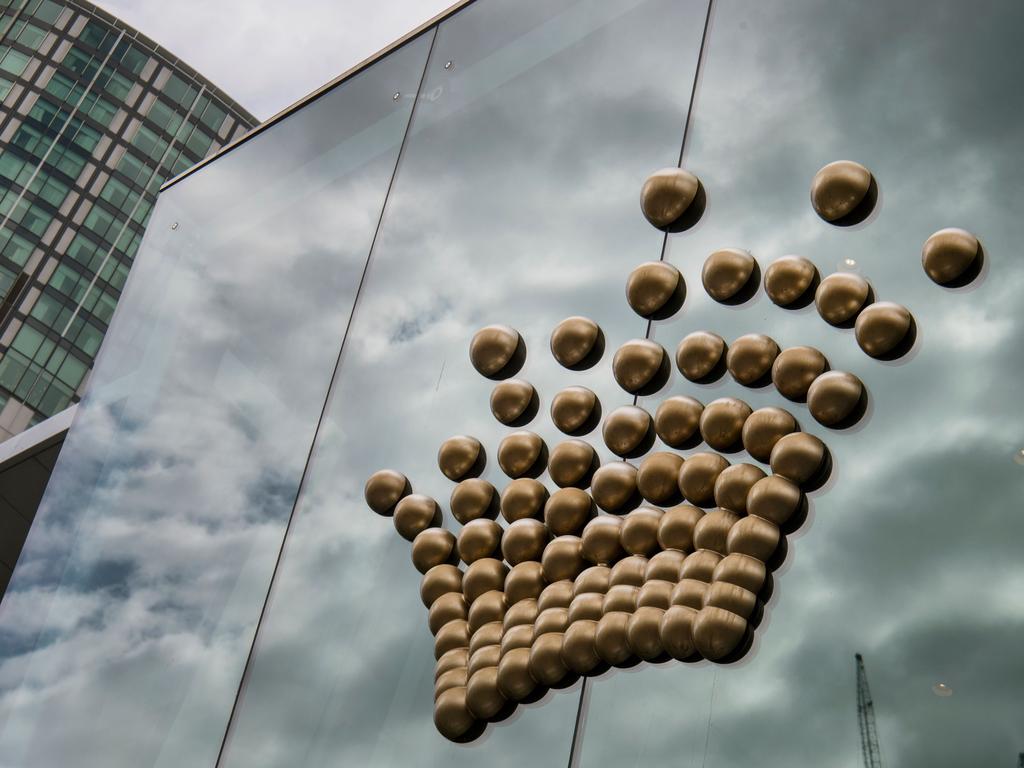Pandemic slashes $7bn off dividends
Many companies paid no dividend at all or slashed their distributions in the face of a viral pandemic.

The coronavirus pandemic has dealt a near-$7bn hammer blow to dividends across the nation’s most widely held companies, as the earnings season nears completion.
Australian shareholders are set to receive more than $21.45bn in dividends in the June 2020 period from the top 50 ASX-listed companies, down sharply on the $28bn paid out in the same period last year.
Many companies paid no dividend at all or slashed their distributions in the face of a viral pandemic not witnessed in more than 100 years.
The result looks set to be much worse when Westpac, NAB and ANZ report later in the year, given the hit to bank earnings from provisions made to cope with the expected rush of mortgage delinquencies and the cost of covering loan deferments.
The result also reflects record profits from the iron ore industry, which buoyed overall results from the big earners — BHP, Rio Tinto and Fortescue Metals.
The biggest falls include BHP, which dropped June half payouts to $3.84bn from last year’s cashed-up $5.41bn. Others included Commonwealth Bank where June half payouts fell to $1.73bn from $4.09bn a year ago. Macquarie Group nearly halved its second half dividend payments to $638m while Brambles, Santos and Telstra trimmed payments.
Several of the top 50 scrapped payments altogether, including Aristocrat, Ramsay, Sydney Airport and Scentre.
For the 2019-20 financial year, dividends are likely to have fallen almost 30 per cent compared to 2018-19, partly due to a higher base effect, according to MST senior analyst Hasan Tevfik.
While the coronavirus pandemic and associated social distancing requirements have been the biggest factor, the comparison to dividends a year ago was magnified by large payouts in the second half of that year as companies rushed to use up franking credits before an expected Labor victory in the May election, since Labor had vowed to scrap dividend imputation.
Banks have been the main culprit behind the slump in aggregate dividends in 2019-20, largely due to regulatory pressure to preserve capital and pay out less than half of their earnings as dividends.
Aggregate dividend estimates for the next financial year were revised up slightly during earnings season, mainly due to upgrades for commodity producers, while other sectors were downgraded.
Upward revision
But even with that upward revision, dividends are still expected to shrink in 2020-21.
Looking ahead, dividends will be affected more by the changing composition of the equity market.
“The Aussie equity market is loaded up with some big dividend payers — namely banks — which are probably going to continue to suffer, but thankfully resources have continued to fill that space,” Mr Tevfik said.
Traditionally owned for their growth potential, resources companies are “the new dividend stocks”.
Evident for the last few years, that trend was confirmed in the August reporting period.
Mr Tevfik said commodity producers exceeded expectations for dividends in the second half of 2019-20 and have subsequently enjoyed upgrades to future payout estimates.
But there have been downgrades for the financial sector and the banks in particular.
A broad range of companies have cut, reduced or suspended their dividends in response to COVID-19 and it is unclear how quickly they will be restored.
Sydney Airport, Qantas and casino operators are among those cutting dividends to zero.
“Anything COVID-related has cut their dividends and capital distributions (including share buybacks) in general as they have moved to conserve their capital,” Mr Tevfik said.
BlueScope, Viva Energy and South32, for example, suspended share buybacks.
He noted that dividends would have been worse but a number of companies increased their payout ratios, meaning they paid more of their earnings out as dividends, even as earnings fell.
“In aggregate there was some attempt to maintain distributions even though earnings have fallen,” Mr Tevfik said. “You could have actually seen more, given that in the global financial crisis the banks paid big dividend reinvestment plans — effectively paying dividends in the form of shares — although they aren’t bothering with that this time, partly because of what the regulator has asked them to do.”
Despite lower interest costs from low interest rates helping the bottom line, companies generally haven’t used lower borrowing costs to prop up their dividend payments.
“I haven’t seen any increase in leverage and there has been a significant decrease in the cost of debt, so that’s one of the cost cuts we have seen,” Mr Tevfik said.
“In general companies have been in consolidation but in the resources sector (ex-oil) there has been almost an embarrassment of riches. Because of that, you’ve seen capital expenditure expectations upgraded alongside dividend estimates.”
Don Hamson is the co-founder of Plato Investment Management, whose Plato Income Maximiser is an actively managed listed investment fund that aims to reap dividends from the local market.
“We see it as a very mixed reporting season with big disappointments for some stocks but some bright spots as well,” Mr Hamson said.
“Fortescue Metals certainly delivered on expectations while BHP and Rio Tinto were mildly disappointing and obviously they are not pure-play iron ore miners.
“Overall if you look back over the past three years, the percentage of dividends from the resources sector has more than doubled, while on the other hand, financials dividends have fallen almost 20 per cent.
“COVID has clearly had a major impact on the banks, and a lot of the heavy lifting in terms of offsetting the reduction in dividends from financials is coming from an increase in resources.”
Some of the other positive surprises came from companies like Magellan — which paid a special dividend out of a performance bonus — and the retailers, where JB Hi-Fi was a standout.
“Obviously Coles’ and Wesfarmers’ earnings were also bright spots and they certainly delivered on dividend expectations as people stayed home more and renovated more,” Mr Hamson said.
But the banks and some other financials were held back by the APRA directive on dividends.
Westpac’s decision to cancel its dividend after initially deferring it was a clear disappointment.
“I think by the time we get through this year, dividends will have fallen about 33 per cent,” Mr Hamson said. “There are still plenty of dividends around, but not in the areas where you would normally look.”






To join the conversation, please log in. Don't have an account? Register
Join the conversation, you are commenting as Logout